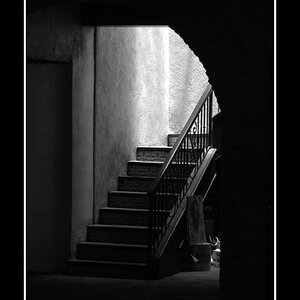flyin-lowe
TPF Noob!
- Joined
- Jan 5, 2009
- Messages
- 287
- Reaction score
- 6
- Can others edit my Photos
- Photos OK to edit
Have him go ahead and set up the tripod and his own camera. That way if "your way' doesn't suit him then he can fall back on his original plan.













![[No title]](/data/xfmg/thumbnail/41/41423-156eb6e5a056cd1cbcf60e12a03f9d56.jpg?1619739809)